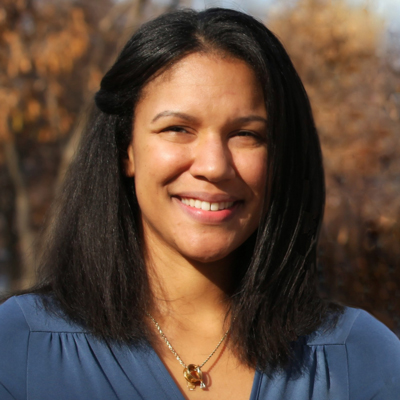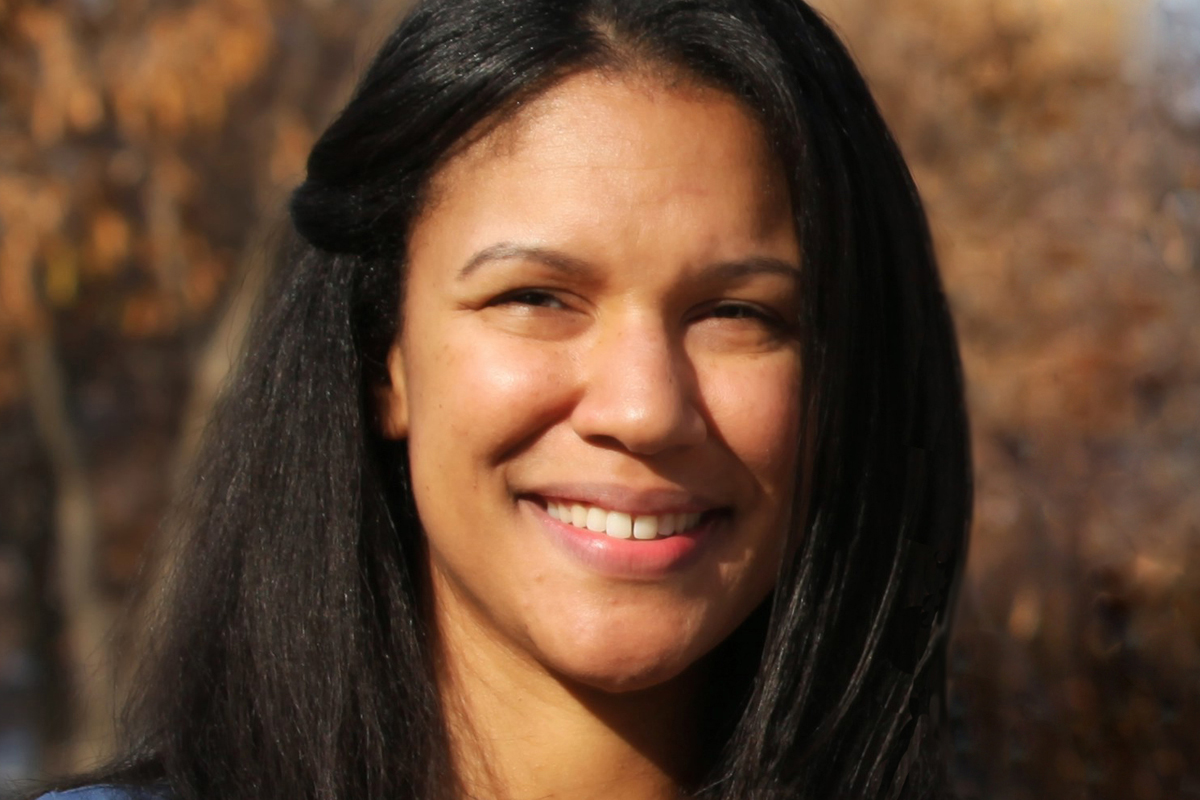
A LEADER WHO LISTENS Furlonge says she has learned to look past stereotypes, “lean in and be curious.”
Nicole Brittingham Furlonge, a teacher, teacher educator and researcher who has held senior positions at several prestigious independent schools, will become the new Director of Teachers College’s Klingenstein Center for Independent School Leadership on September 1st, 2018. Furlonge will also join TC’s faculty as a Professor of Practice in the Education Leadership Program within the Department of Organization & Leadership.
Furlonge, who was chosen after an eight-month national search, will succeed Pearl Rock Kane, who has directed the Klingenstein Center since 1980, not long after its creation. Kane, who has been TC’s Klingenstein Family Professor for the Advancement of Independent School Education, will continue to serve as a full-time faculty member.
James Scott, President of Punahou School in Honolulu and chair of the Klingenstein Center Advisory Committee, called Furlonge “a thoughtful, eloquent, passionate, and curious teacher and scholar” who is “eager to work with the Advisory Committee and the robust network of Klingenstein alumni to build upon Pearl Kane's awesome leadership and legacy and take the work of the Center into its next era.”
Andy Klingenstein, President of the Esther A. & Joseph Klingenstein Fund, Inc., said that Furlonge is “a master teacher and scholar of education with compelling leadership qualities. My family and I could not be more pleased that she has been chosen to direct the Klingenstein Center.”
“Independent schools are very diverse in their individual missions and designs, but at their core is the notion of educating the whole person, not just through academic learning, but through an intellectual life that includes a focus on character – who one is emotionally and socially, and how one can make a positive impact on the world.”
Furlonge is no stranger to the Klingenstein Center. She has twice taught in its summer program, and her husband, Nigel Furlonge (M. Ed.’06), is a Klingenstein alumnus. Both Furlonges currently serve at the Holderness School in New Hampshire, where she is English Department Chair and Director of Teaching and Learning, and he is a History Department faculty member and Associate Head of School. The Furlonges and their three children – Logan, 13, Lucas, 10, and Wyatt, 6 – are in the process of moving to New York City, where this fall Nigel Furlonge will become Principal of the Upper School at the Fieldston School.
Prior to her current post, Nicole Furlonge was Chair of the English Department at Princeton Day School in Princeton, New Jersey. In previous roles, she served as English Master and Mentor Teacher at the Lawrenceville School, also in New Jersey, and English Department Chair and Director of Diversity at St. Andrew’s School in Middletown, Delaware. She earned her Ph.D. in English at the University of Pennsylvania, where she titled her dissertation, “On the Lower Frequencies: Listening and African American Expressive Culture.” Her book, Race Sounds: The Art of Listening in African American Literature, will be published in May by University of Iowa Press.
“I’m honored and excited to have the opportunity to lead the Klingenstein Center, and to combine my practice in independent schools with designing learning experiences for adults and students,” Furlonge said. “Independent schools are very diverse in their individual missions and designs, but at their core is the notion of educating the whole person, not just through academic learning, but through an intellectual life that includes a focus on character – who one is emotionally and socially, and how one can make a positive impact on the world. The common thread of the Klingenstein experience is a focus on leadership as a habit of mind, and on the opportunity to be an educator-citizen who co-designs the school culture. That focus has grown out of Pearl Kane’s remarkable capacity to imagine, design and implement beyond what is – and that’s what I most want to uphold and build upon.”
“The common thread of the Klingenstein experience is a focus on leadership as a habit of mind, and on the opportunity to be an educator-citizen who co-designs the school culture. That focus has grown out of Pearl Kane’s remarkable capacity to imagine, design and implement beyond what is – and that’s what I most want to uphold and build upon.”
Part of her own work, Furlonge said, has been about creating professional learning cultures within schools, in which teachers model learning for students by continuing their own growth. She has designed a summer institute for Holderness teachers on social and emotional learning and mind-brain education, addressing issues such as the rise in student anxiety and depression at all schools. She has also worked with department chairs on how to mentor teachers, observe classrooms and provide feedback towards growth.
“I’ve drawn heavily on Ellie’s book,” she said, alluding to Tell Me So I Can Hear You: A Developmental Approach to Feedback for Educators, co-authored by Eleanor Drago-Severson, Professor of Education at TC with a dual appointment in Education Leadership and in Adult Learning & Leadership.
Furlonge also said she hopes to focus on issues of diversity, equity and inclusion. “Independent schools are committed to increasing access, but how can we ensure that educators coming through the Klingenstein programs reflect the diversity we want, so that the leadership pipeline is robust and diverse?”
A key to Furlonge’s approach in addressing all these issues will be her emphasis on listening. While her interest in that dimension is scholarly – her forthcoming book has been called “a provocative and innovative meditation on listening as an interpretive, creative, and civic act that is foundational to twentieth and twenty-first century African American literature and American political culture” – it also comes from a more personal place. As Furlonge has movingly described in a series of pieces published in The Huffington Post, she was born to a white teenaged mother and a black teenaged father and given up for adoption (the couple did not stay together). As an adult, she separately tracked down her birth parents, experiences that challenged her to look past stereotypes she had not realized she held. Ultimately, she writes, she benefited from “a willingness to lean in, be curious and get proximate that allowed me to find family and to begin thinking more fully about how the story of race, class and gender in America is very much a family affair.”
